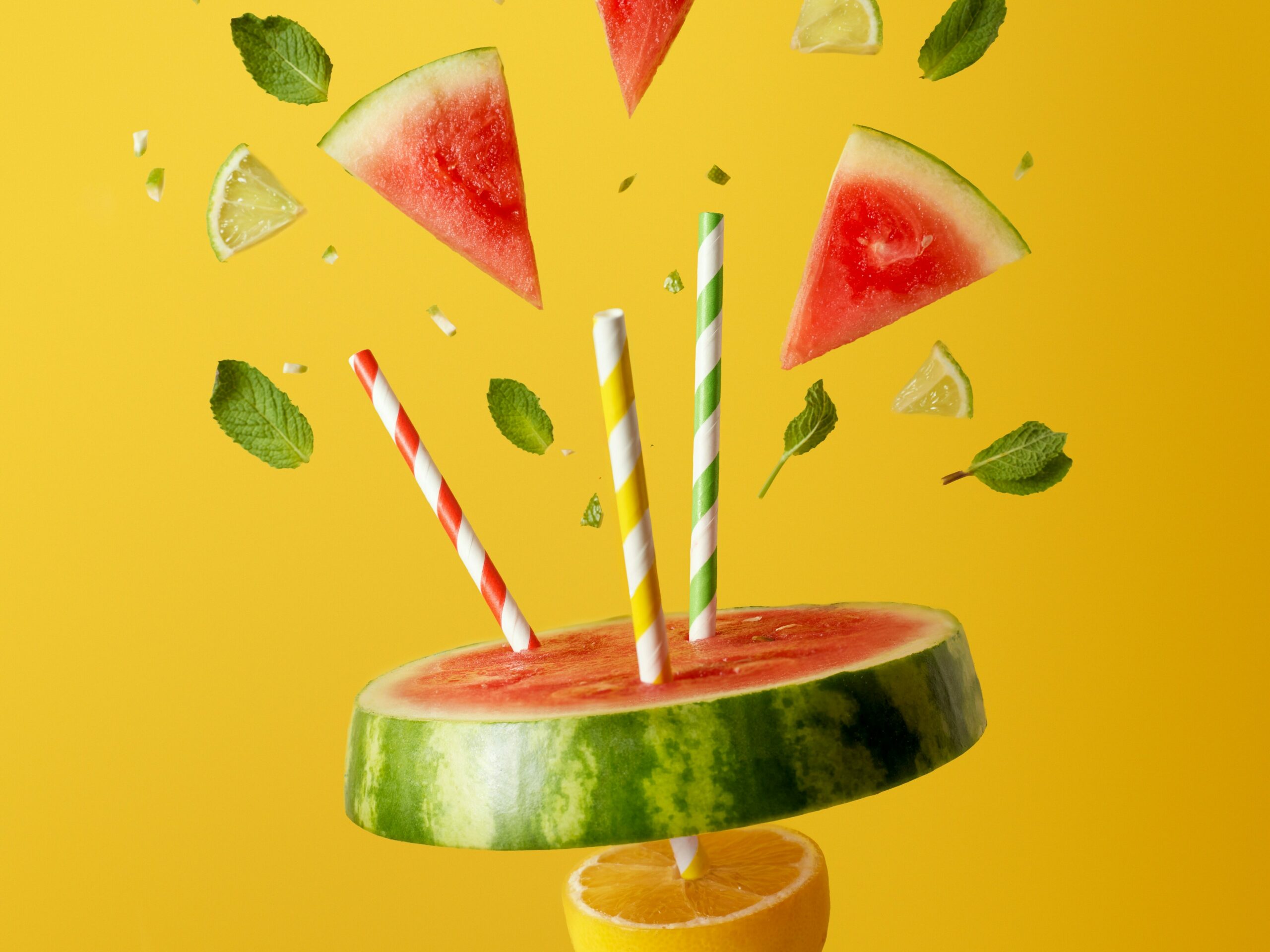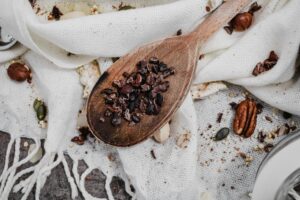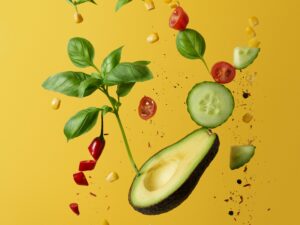Don’t like Drinking Water? Eat It Instead – Amazing High Hydration Fruits and Vegetables
Now more than ever, it is important for us to drink water to maintain our body’s hydration. Since summer is right around the corner, we need to start practicing healthy habits that can promote wellness. However, some people don’t like drinking water, I get it. Eat it instead. These high hydration fruits and vegetables are a great option for when you’re feeling hungry and also need a boost of hydration.

Keep reading to find out the dangers of dehydration, and which high hydration fruits and vegetables you should be eating in order to maintain your body health today!
The Importance of Hydrating Well
Water is life, there is no denying that. We can survive weeks without food, but only a couple of days without water. With record-breaking temperatures and summer heat waves, it is more important than ever to stay well-hydrated. We lose water through sweat and general activity commonly when outside, and much more when it is hot.
Even slight dehydration is very dangerous. It can cause a plethora of issues, including mental fog, decline in memory, muscle cramps, dry mouth, headaches, insomnia, and even organ failure in extreme cases. Stay hydrated well, drinking beverages with electrolytes. Make sure your drink is not too cold or too hot so that the body can process it well and avoid overly sweet drinks.
Not a fan of drinking water? Eat it instead. High hydration fruits and vegetables can be a great option if you feel hungry and thirsty!
High Hydration Fruits and Vegetables
Here are 12 high hydration fruits and vegetables that you can eat to maintain healthy water levels. Hydration is key for health, especially in the summer when we are prone to dehydration.
1. Watermelon
At a whopping water content of 92%, watermelon is one of the most hydrating fruits you can eat. It is very high in important nutrients such as vitamin A, vitamin C, and magnesium, and contains high levels of fiber. Watermelon also has a lot of antioxidants and can help keep you fuller for longer.
2. Cucumber
This vegetable has a water content of 95%. It is also a very healthy option for when you want to boost your hydration. Cucumbers are truly mostly water, but they do have a small percentage of nutrients such as vitamin K, magnesium, and potassium. Cucumbers are very low in calories, so you won’t gain too much energy from eating them, but the high levels of water make them very hydrating.
3. Bell Peppers
92% is this vegetable’s water content. It is a very healthy vegetable to eat as it is high in vitamin C, which can help you fight off illness and promote healthy cells and bones. Bell peppers are high in fiber and vitamin B, and contain nutrients such as antioxidants which can be beneficial for eye health.
4. Celery
Celery boasts a 95% water content. Like cucumbers, it is mostly water and has very few calories. However, celery is a bit higher and has important nutrients such as potassium and vitamin K. Plus, it contains high amounts of fiber that can be very beneficial to your health.
5. Oranges
This fruit has 88% water content. These are incredibly high in vitamin C and potassium, which can be very beneficial to your cardiovascular health and immune system health. Oranges also have many antioxidants that can help reduce inflammation and prevent cell damage.
6. Strawberries
This fruit has a water content of 91%. Strawberries are surprisingly high in vitamin C and contain folate and manganese. Regular consumption of strawberries has also been found to help reduce inflammation and increase cardiovascular health. Strawberries are great in salads, smoothies, and yogurt.
7. Cantaloupe
90% is the water content of this fruit. It contains some fiber and is very rich in vitamin A, which may help boost your immune system health. Cantaloupe is easily paired with salads, yogurt bowls, or even salsas.
8. Lettuce
This vegetable has a 96% water content. Like cucumbers, they are just crunchy water. Lettuce has a small amount of fiber but contains a bit more folate, which is very important to health. It is also surprisingly high in vitamins A and k, making it a good vegetable to help you support your immune health.
9. Zucchini
This vegetable’s water content is about 94%. Zucchinis have incredibly high amounts of fiber and are relatively low in calories. They contain high doses of vitamin C and can be used in a variety of ways, from soups to salads and stir fry. They are even very popular as a noodle alternative to regular pasta.
10. Tomatoes
This fruit (that should be a vegetable) has a water content of 94%. I’ve said it once and I’ll say it again, I think tomatoes should be a fruit but that’s neither here nor there. They contain many vitamins and minerals, plus important disease-fighting antioxidants. They are a great addition to savory salads and soups and can be used to make salsa or other dishes.
11. Cauliflower
This vegetable has a water content of 92%. It is incredibly high in many different vitamins and minerals, including an important one called choline. This is a nutrient that is very important for your metabolism and the health of your brain. Cauliflower is also an incredible source of fiber and can be a good substitute for grains since it can easily be shredded into cauliflower rice.
12. Peaches
This fruit’s water content is 89%. They have many vitamins and minerals such as potassium, vitamin A, vitamin B, and vitamin C. Bonus points if you eat the skin of your peach, as this part has many disease-fighting antioxidants that can be very beneficial to your health.
The Takeaway
If you’re tired of chugging H2O or don’t feel like drinking water, try eating your water. These high hydration fruits and vegetables are a great addition to your day to boost your body’s hydration. Dehydration is very detrimental to health and we should always be trying to boost our hydration when we are thirsty. However, if you don’t like drinking water, please foods can help you eat it and hydrate.
Remember that health comes from within. Eat healthy, nutritious meals, exercise when you can, and take care of your mental health. Daily habits become the building blocks for emotional, mental, and physical health. Take care of your gut health too! Learn everything you need to know about gut microbiota today for free here.





